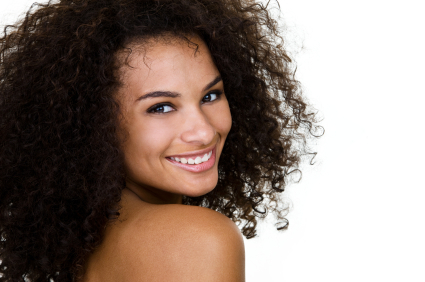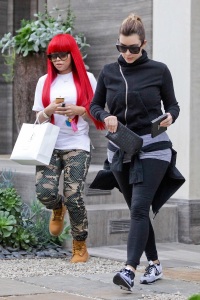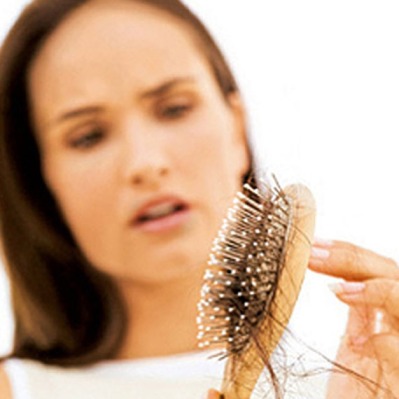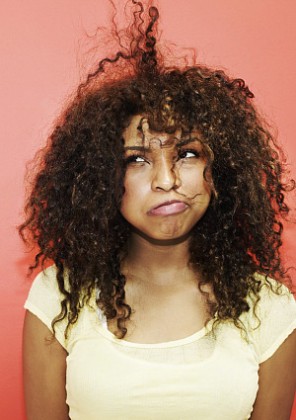What’s on your hair? If it’s healthy, shiny, and growing, chances are you’re using the right conditioning treatments. But if you’re still seeking that wholesome sheen and length, you probably need this ultimate guide to conditioning hair. Here’s everything you need to know!
Rinse-Through Conditioners
Also known as instant conditioners, these lightweight treatments are applied to the hair immediately after shampooing and rinsed out after a few (2 to 10) minutes. You will usually see more shine and softness immediately, but the results probably won’t last more than a couple of days; this is because instant conditioners simply leave trace amounts of key ingredients on the hair shaft, kind of like an oil spot on concrete. These conditioners can help build volume, manage tangles, and moisturize hair, temporarily. Rinse-out conditioning is best when you just need locks to look better in a hurry, and can be done after any and every shampoo. If you have fine hair that is easily weighed down, try applying a rinse-out treatment before washing hair.
Protein Conditioners
A special kind of rinse-through conditioner for stressed or damaged manes. Good protein conditioners contain keratin, the same protein your hair is made of, and other strengthening ingredients that help fill in cracks in the hair cuticle, fortifying strands to beat breakage and shedding. Think of them as the glue that holds your hair together.
A word of caution, though: just like glue, protein conditioners alone can leave hair hard and brittle. It’s important to seal the newly-rebuilt hair cuticle with a moisturizing conditioner of some sort, especially for kinky or curly hair; the layer of moisture will help keep hair soft and manageable. (Consider this a follow-up layer of varnish.) As a result, protein conditioners should not be applied more than twice a month, even for the most damaged tresses.
Deep Treatments
Deep conditioners are an absolute must for dry, processed, and curlier hair types. These penetrating formulas are made to last, moisturizing tresses for a much longer time than instant treatments. Deep conditioning treatments soak into the hair shaft over 30 to 45 minutes or more, helping correct and prevent all kinds of mane problems including shedding, split ends, breakage, slow growth, and dullness. Apply these with a heating cap up to once per week and allow both strengthening and silkening ingredients to hydrate your hair from the inside out.
Leave-In Conditioners
These are a curly girl’s best friend. Not only do these treatments give strands “slippage,” making detangling easier, but they also provide ongoing moisture and protection from sun and wind damage. Leave-in conditioners, true to their name, are applied last before styling and can also help straight-locked ladies who spend a lot of time outdoors or have thick coifs keep their tresses under control and damage-free. Thicker products like Mane N’ Tail’s leave-in formula are best for kinks or tight curls, while liquid leave-ins like those by Infusium 23and Biotera suit straighter hair better. Use after every shampoo; for those with extremely dry natural black hair, consider using leave-ins even after a deep-conditioning or rinse-through treatment (you don’t want to try and comb it “naked”).
Hot-Oil Treatments
Using the right oils can help reinvigorate hair, adding flexibility to locks fried from blow-drying, flat ironing, or hot curling. The best route is to apply oils to dry strands, cover with a shower cap or plastic bag, and let your body heat drive the natural proteins and moisturizers into your now-open hair cuticles.
The main concern with hot oil conditioning treatments is finding the right balance of ingredients to soften the hair without weighing it down or clogging pores. Store-bought formulas tend to use alcohols to lighten the load, but naturally lightweight oils like coconut and carrot can get the job done for a fraction of the price. To further keep away the Greasy Head, only use hot-oil treatments once a month – stick to other conditioning options to keep your locks healthy.
Because of course you have plenty of options! All conditioners come in several formulas to serve a variety of needs, from straight hair that needs regular, lightweight protection to dry, damaged, and color-treated locks that crave heavy hydration. So there’s absolutely no excuse not to start making the hair your want tomorrow today.











